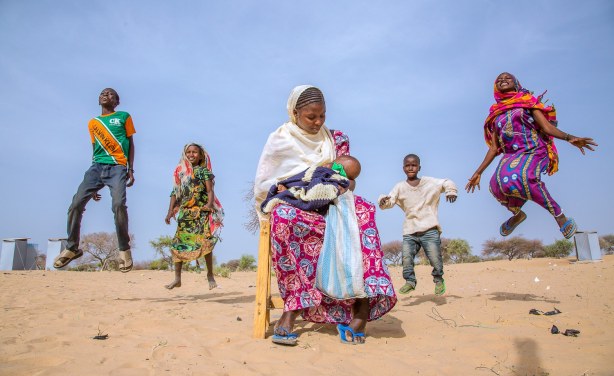The United Nations Children Education Fund on Tuesday said a major health campaign was underway in the Lake Chad Basin area to vaccinate over 41 million children against polio so as to contain the recent outbreak of the disease in the North-East geopolitical zone.
The organisation, in a statement, said the population of people fleeing war zones was on the rise within the sub-region, raising concerns that the polio virus could spread across borders.
It revealed that nearly 39,000 health workers were deployed across Nigeria and neighbouring Chad, Niger, Cameroon and the Central African Republic to deliver polio vaccines in high risk areas for the virus during the five rounds of coordinated vaccination campaigns across five countries.
“UNICEF is procuring the vaccines and engaging the public through mass media and grassroots mobilisation. The re-emergence of polio after two years with no recorded cases is a huge concern in an area that’s already in crisis,” the statement quoted Manuel Fontaine, UNICEF Regional Director for West and Central Africa, to have stated.
Fontaine added, “The scale of our response reflects the urgency: we must not allow polio to spread. The ongoing conflict has now displaced 2.6 million people, devastated provision of healthcare and left more than four million people in the North-East of Nigeria facing crisis and emergency food security levels. In the three worst-hit Nigerian states, 400,000 children will suffer from severe acute malnutrition this year.
“Polio vaccination teams in parts of Borno State are conducting simultaneous malnutrition screening to identify cases of severe acute malnutrition in children under five and refer malnourished children to treatment programmes. Findings from the first rounds of outreach screening have confirmed high rates of severe acute malnutrition.”
Fontaine, according to the statement, adds, “Children are dying and more young lives will be lost unless we scale up our response. Through the polio vaccination drive, we can protect more children from the virus while also reaching children in need with treatment for malnutrition.”
The UNICEF chief noted that the third round of the current polio campaign would run from October 15 to 18 with additional rounds scheduled for November and December.
Meanwhile, six persons have been killed in an attack by suspected members of the Boko Haram sect on a village in Borno State, a chieftain of the youth vigilance group, Bashir Abbas, told our correspondent on Tuesday.
According to Abbas, the Commander of Sector II of the Civilian JTF in Borno State, the insurgents attacked the Kwashebe village in Jere Local Government Area of the state on Monday night, killing two residents on the spot while the other was killed on the way to the hospital as a result of injuries suffered during the attack.
Abbas said because the attack was at night, the insurgents could not be pursued.
He, however, said the youth vigilance group in the area, combed the area on Monday morning during which three insurgents were killed.
He also revealed that those injured in the attack were brought to a hospital in Maiduguri for medical treatment.
PUNCH.


